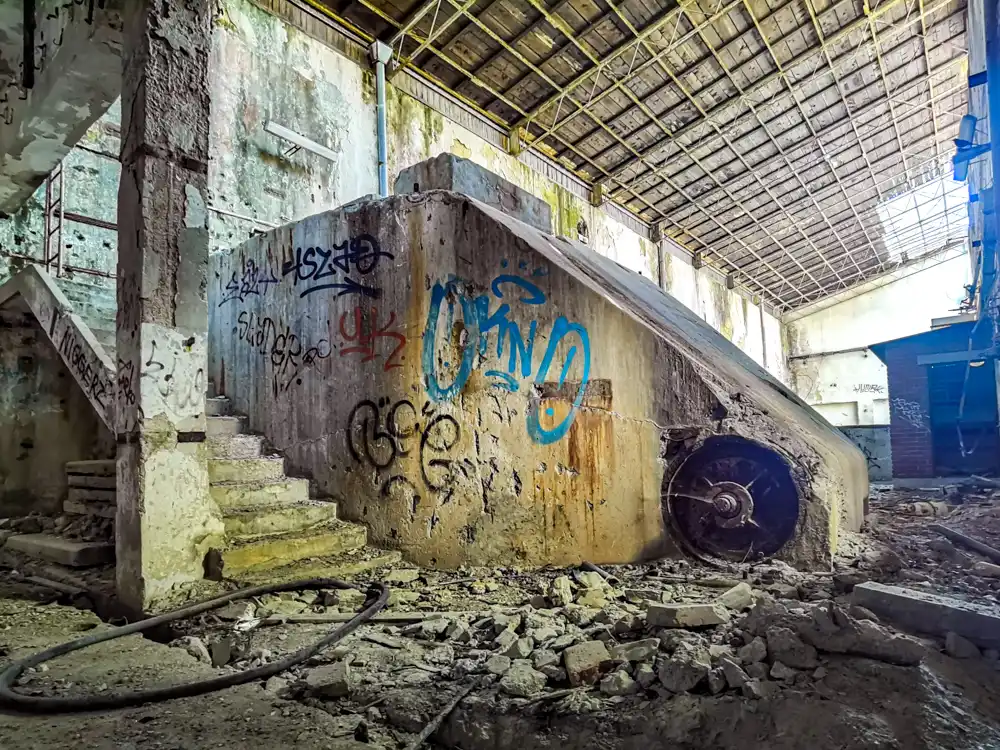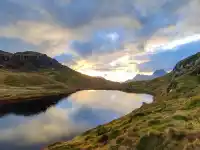At the edge of Rijeka, where the Rječina River flows into the city and later meets the sea, lies an old paper factory. Its walls are crumbling, windows shattered. The air smells of damp concrete and forgotten stories. The paper factory in Rijeka offers adventurers a chance to explore something beyond Croatia’s beaches—a new dimension of aesthetics, local graffiti, and the unique spirit of this place.
Just You, Silence, and Imagination
There are places where time stands still. Abandoned factories, empty halls, rooms filled with dust and silence. Some see only ruins—I see stories. Discarded papers, every peeling piece of plaster, every broken window, an unemptied drawer in an old shattered desk—all bear traces of the people who once worked here.
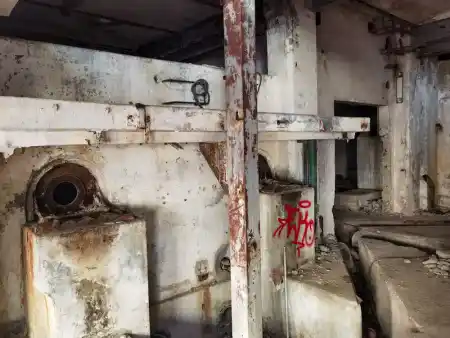
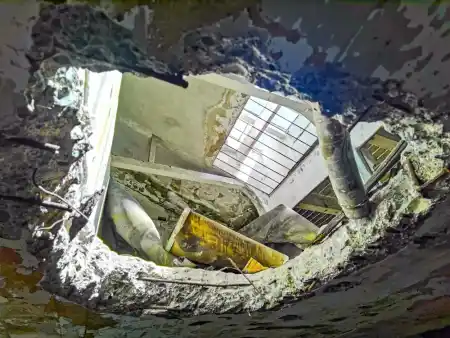
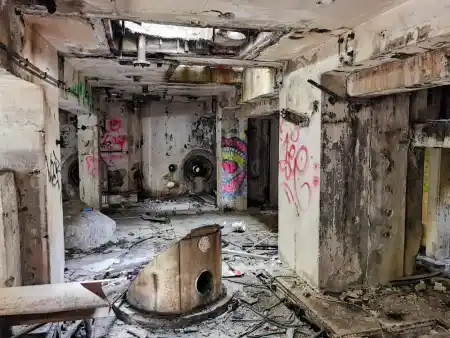
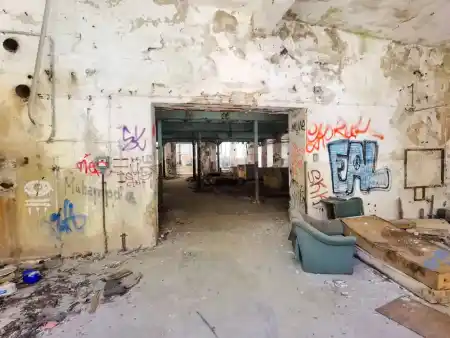
Photographing these places is, for me, like capturing their last breaths. It’s as if I’m trying to record the echoes of footsteps, the clatter of machines, and the pulse of life that once filled them. These were places of work, noise, the rhythm of machines, and conversation. Now, only silence and the wind remain.
I’m drawn to this paradox—something built for productivity and movement now transformed into a cathedral of silence. I take photos because I want to capture that strange connection between past and present, life and oblivion.
And maybe it’s personal, too. Every abandoned factory reminds me of impermanence—not just of places, but of us. If even these massive buildings can be swallowed by time, what will remain of us? Perhaps just images that someone will stumble upon one day. Perhaps just silence between the walls.
The Paper Factory
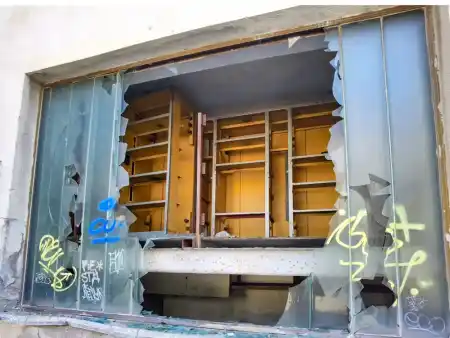
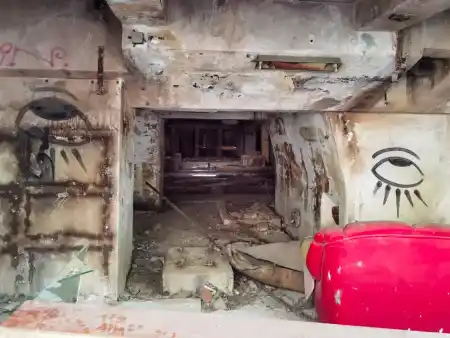
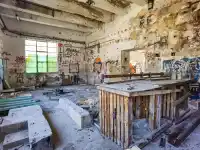
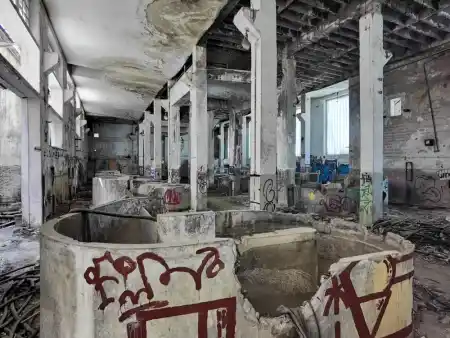
One of us guarded the bikes while the other explored. And then we switched. We entered through a hole in the fence, a wire caught on my sleeve but didn’t hold me back. Inside, it was musty, cold, and damp, even though the sun was blazing outside. Our footsteps echoed through the empty hall. Rusty hooks still hung on the walls, old papers were scattered across the floor—maybe invoices, maybe letters that never arrived.
Watch your step. You never know what might collapse beneath you or what might fall from above.
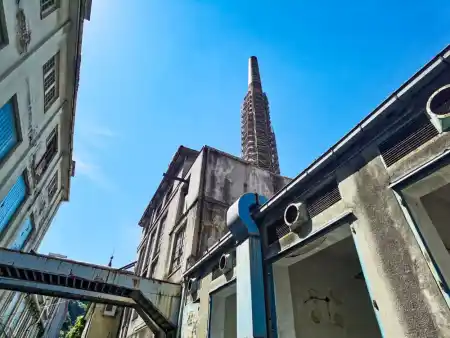
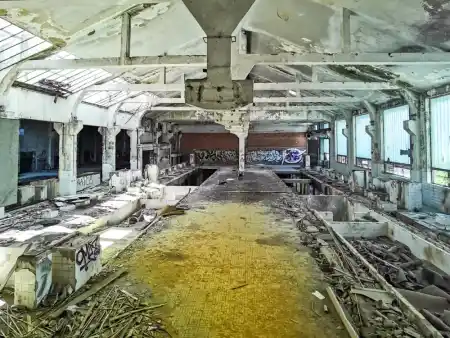
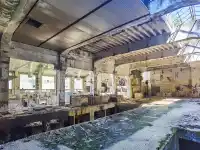
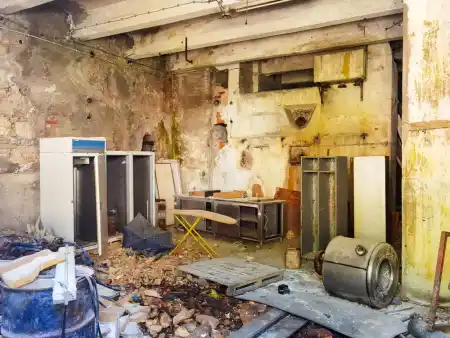
The factory once produced cigarette paper, wrapping paper, perhaps even old schoolbooks. “1821” was written on a rusted metal plaque above the entrance. It was one of the first paper mills in this part of Europe. During the Austro-Hungarian era, this place must have been bustling with life. Supposedly, it employed over 1,500 people. Then came the war. And then another.
Forgotten Industry
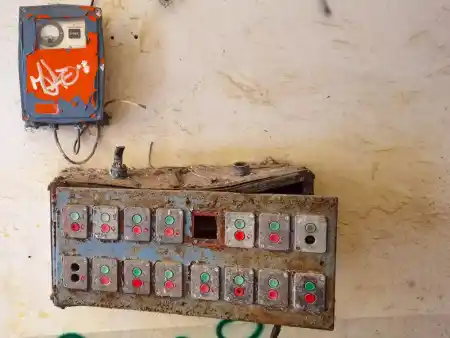
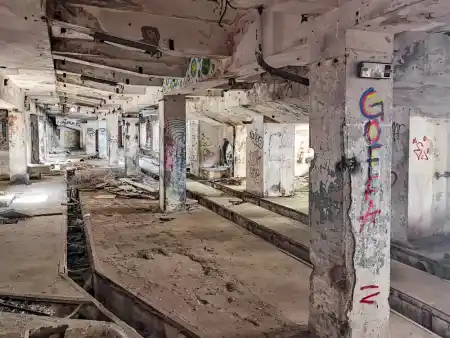
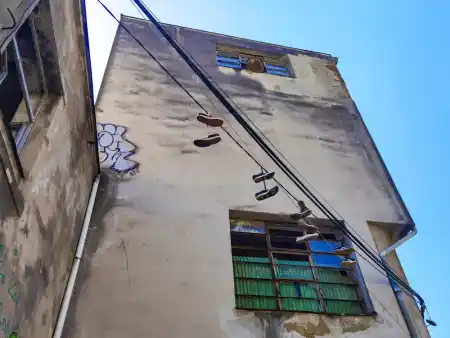
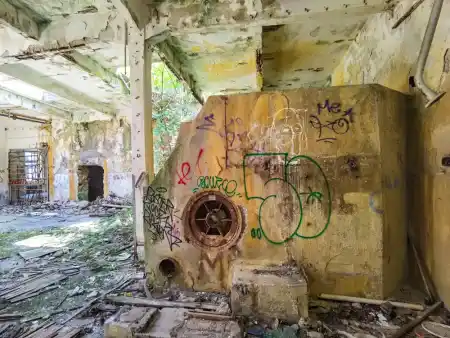
In one of the halls, remnants of old machines still stood. They were broken, but some parts were still recognizable—large presses, massive reels, mechanical arms that once lifted stacks of paper. Rusty tracks stretched across the floor. Maybe a narrow cart once transported finished products to storage.
In the back hall, something was different. The silence here felt even heavier. The walls were covered in old inscriptions, some still legible. Dates. Names. Numbers. Work shifts, or something else?
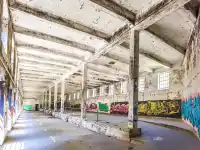
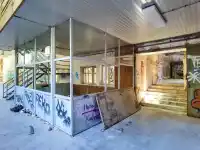
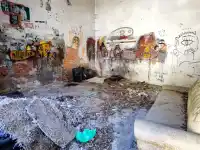
The Rijeka Paper Factory kept revealing more and more secrets. A little further on, the locals had turned part of the space into an impromptu techno venue. Graffiti, music, discarded bottles. Another hall that, after production ceased, had apparently hosted an underground nightclub.
Into the Gorge
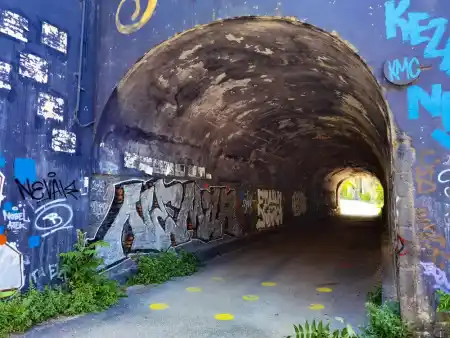
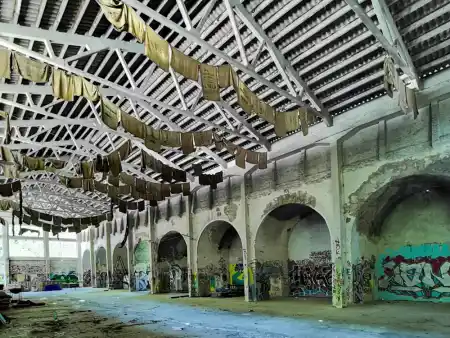
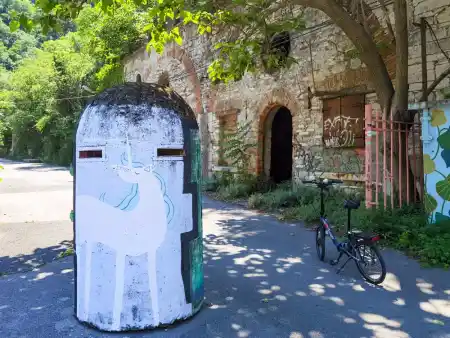
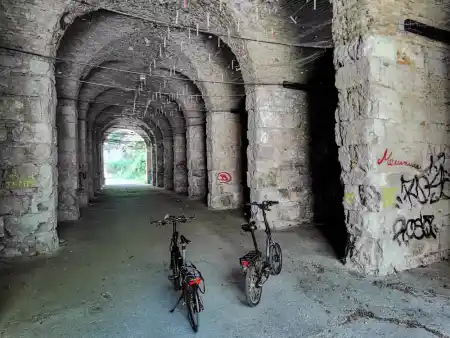
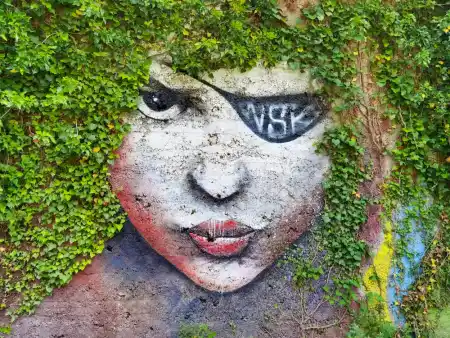
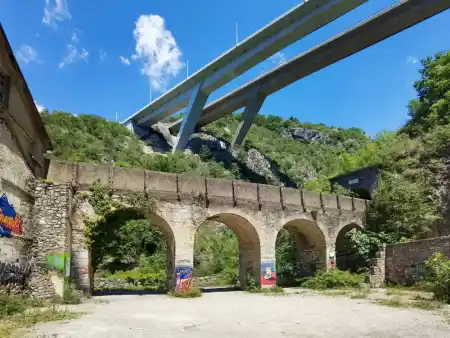
Beyond the main halls, a gorge rose up. The river on one side, cliffs on the other. And there, at its end, on a deserted path, we found another hall. Long, gray, with battered doors that moved slightly when we pushed on them. In front and behind it, ramps and old military guard posts. Two of them. Small, abandoned. Gun slits, dark as the eyes of someone who has seen too much. You wouldn’t find a better place in Rijeka to isolate the unwanted—with no way out.
Something was hanging from the ceiling. On the floor, we found an old locked padlock. Heavy, thick, still locked, even though the doors it once secured had long lost their purpose. Who locked it? And why?
“What were these guard posts for? What happened here?” one of us asked, but no one answered. Not even the local woman (a teacher, by the way) we spoke to later that evening was willing—or able—to say.
Rijeka Paper Factory
Outside, the Rječina River kept flowing, silent. And we agreed—some doors are better left unopened.

